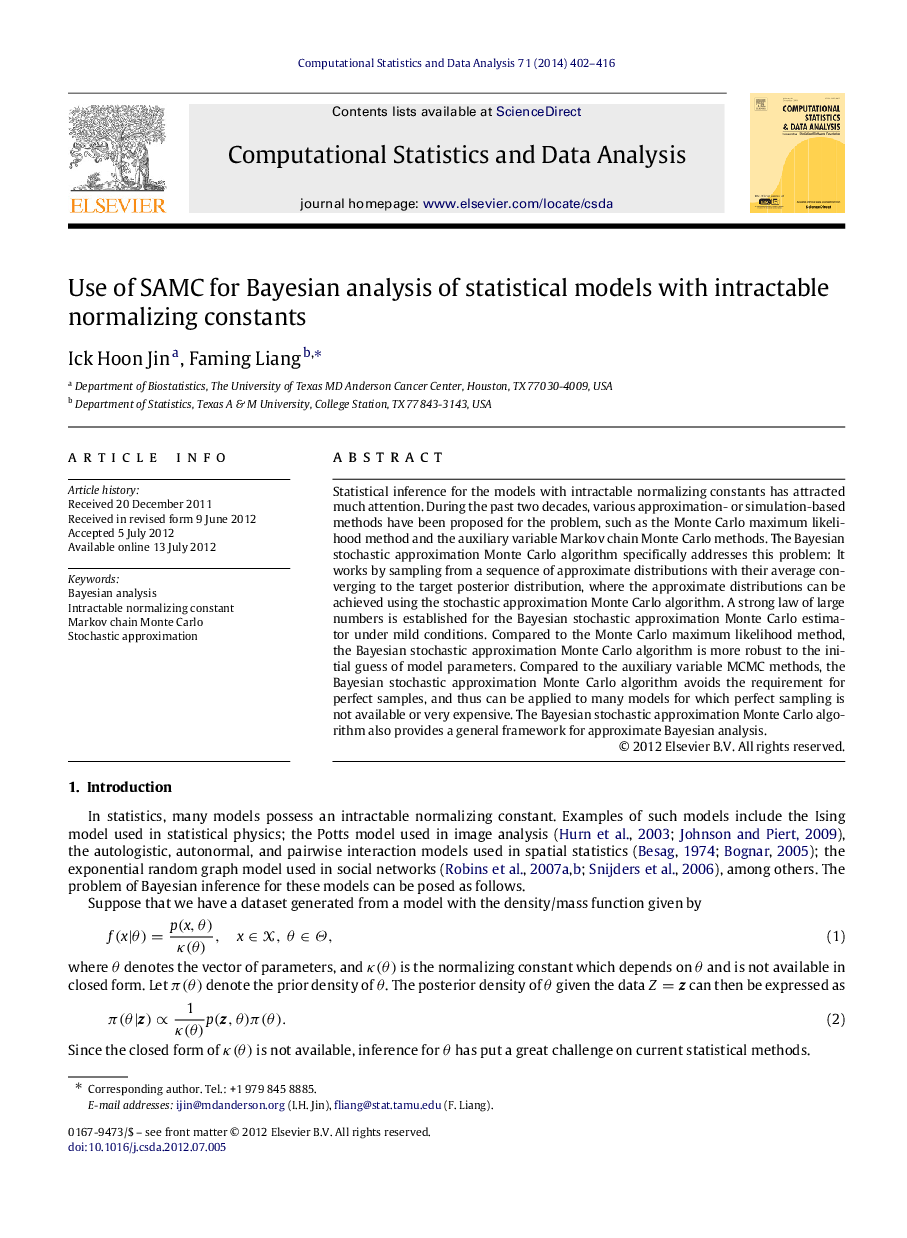| Article ID | Journal | Published Year | Pages | File Type |
|---|---|---|---|---|
| 6870413 | Computational Statistics & Data Analysis | 2014 | 15 Pages |
Abstract
Statistical inference for the models with intractable normalizing constants has attracted much attention. During the past two decades, various approximation- or simulation-based methods have been proposed for the problem, such as the Monte Carlo maximum likelihood method and the auxiliary variable Markov chain Monte Carlo methods. The Bayesian stochastic approximation Monte Carlo algorithm specifically addresses this problem: It works by sampling from a sequence of approximate distributions with their average converging to the target posterior distribution, where the approximate distributions can be achieved using the stochastic approximation Monte Carlo algorithm. A strong law of large numbers is established for the Bayesian stochastic approximation Monte Carlo estimator under mild conditions. Compared to the Monte Carlo maximum likelihood method, the Bayesian stochastic approximation Monte Carlo algorithm is more robust to the initial guess of model parameters. Compared to the auxiliary variable MCMC methods, the Bayesian stochastic approximation Monte Carlo algorithm avoids the requirement for perfect samples, and thus can be applied to many models for which perfect sampling is not available or very expensive. The Bayesian stochastic approximation Monte Carlo algorithm also provides a general framework for approximate Bayesian analysis.
Related Topics
Physical Sciences and Engineering
Computer Science
Computational Theory and Mathematics
Authors
Ick Hoon Jin, Faming Liang,
